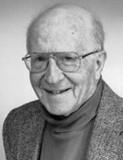Holistic Health or the Biopsychosocial Model

Holistic Health (link to Essentials for Health and Wellness By Gordon Edlin, Eric Golanty, Kelli McCormack Brown) or the Biopsychosocial Model (BPS) posits that biological, psychological (thoughts, emotions, and behaviors), and social factors all play a significant role in human functioning. (The link is to Essentials for Health and Wellness By Gordon Edlin, Eric Golanty, Kelli McCormack Brown.)
*****
“Founder”: George L. Engels (1913-1999)
“… nothing will change unless or until those who control resources have the wisdom to venture off the beaten path of exclusive reliance on biomedicine as the only approach to health care". – G. L. Engels
*****
I agree with this and maintain we have physical, intellectual, social, emotional, vocational and spiritual needs - the neglect of which reduces the ability of one to withstand the effects of stress.
And we live in socio-economic conditions that can enhance or demean our long-term well-being.
In Holistic or Biopsychosoical (BPS) counseling a counselor does a “whole-health” inventory which is much more thorough than the initial intake. This would not likely be done in the first session because it is very directional and therefore doesn’t give the client the opportunity to talk about what she / he wants to address.
Here is an outline of the whole-health inventory I use.
*****
“Founder”: George L. Engels (1913-1999)
“… nothing will change unless or until those who control resources have the wisdom to venture off the beaten path of exclusive reliance on biomedicine as the only approach to health care". – G. L. Engels
*****
I agree with this and maintain we have physical, intellectual, social, emotional, vocational and spiritual needs - the neglect of which reduces the ability of one to withstand the effects of stress.
And we live in socio-economic conditions that can enhance or demean our long-term well-being.
In Holistic or Biopsychosoical (BPS) counseling a counselor does a “whole-health” inventory which is much more thorough than the initial intake. This would not likely be done in the first session because it is very directional and therefore doesn’t give the client the opportunity to talk about what she / he wants to address.
Here is an outline of the whole-health inventory I use.
Personal Well Being – the Biopsycho part of Holistic Health or BPS

PHYSICAL
• Nutrition
• “anti-nutrition” including alcohol, junk food, caffeine and nicotine consumption
• Sleep
• Exercise
• Check in with Dr/NP (weight, blood pressure, blood work including hemoglobin, cholesterol and blood sugar levels, and thyroid functioning)
SOCIAL – Relationships with…
• Partner
• Friends
• Parents or Guardians
• Children or Dependents
EMOTIONAL
• Personal time or “down-time”
• Hobbies
• Good sense of humor
SPIRITUALITY
• That which gives meaning to one's life and draws one to transcend oneself.
• Volunteering
INTELLECTUAL
• Our brains need regular and diverse stimulation.
OCCUPATIONAL
• We thrive on meaningful, paying work.
• Nutrition
• “anti-nutrition” including alcohol, junk food, caffeine and nicotine consumption
• Sleep
• Exercise
• Check in with Dr/NP (weight, blood pressure, blood work including hemoglobin, cholesterol and blood sugar levels, and thyroid functioning)
SOCIAL – Relationships with…
• Partner
• Friends
• Parents or Guardians
• Children or Dependents
EMOTIONAL
• Personal time or “down-time”
• Hobbies
• Good sense of humor
SPIRITUALITY
• That which gives meaning to one's life and draws one to transcend oneself.
• Volunteering
INTELLECTUAL
• Our brains need regular and diverse stimulation.
OCCUPATIONAL
• We thrive on meaningful, paying work.
Social – Economic Well Being – the Social part of Holistic Health or BPS
BASIC NEEDS
• Food security – always has groceries
• Clothing – especially in northern climates
• Shelter – safe pleasant housing
• Access to health care including dental, vision, hearing, dietary, etc.
CAREGIVING AND EDUCATION
• Child care or elder care
• Education
INCOME
• Income – over the poverty line
• Job security
COMMUNITY LIFE
• Safe recreational areas including parks, pools, hiking trails
• A valued role in the family, work and community.
EQUAL OPPORTUNITY
• Culture / race – addressing possible discrimination
• Gender / sexual orientation – discrimination
You can find easy to use forms at:
http://wholehealthcheckin.weebly.com/personal-health-overview.html
http://wholehealthcheckin.weebly.com/social-health-overview.html
*****
Would a counselor use every part of the holistic health list for every person?
No. And even with those people for whom a whole health inventory is done, a counselor would be more likely to check the “Personal Well Being” list since these are things that the client has the capacity to modify (personal empowerment.)
Achieving positive change in “Social-Economic” variables is very often beyond the client’s control. The counselor’s role in this situation may be one of advocacy – helping the client get access to services that she/he might normally not have access to, or even know exist!
• Food security – always has groceries
• Clothing – especially in northern climates
• Shelter – safe pleasant housing
• Access to health care including dental, vision, hearing, dietary, etc.
CAREGIVING AND EDUCATION
• Child care or elder care
• Education
INCOME
• Income – over the poverty line
• Job security
COMMUNITY LIFE
• Safe recreational areas including parks, pools, hiking trails
• A valued role in the family, work and community.
EQUAL OPPORTUNITY
• Culture / race – addressing possible discrimination
• Gender / sexual orientation – discrimination
You can find easy to use forms at:
http://wholehealthcheckin.weebly.com/personal-health-overview.html
http://wholehealthcheckin.weebly.com/social-health-overview.html
*****
Would a counselor use every part of the holistic health list for every person?
No. And even with those people for whom a whole health inventory is done, a counselor would be more likely to check the “Personal Well Being” list since these are things that the client has the capacity to modify (personal empowerment.)
Achieving positive change in “Social-Economic” variables is very often beyond the client’s control. The counselor’s role in this situation may be one of advocacy – helping the client get access to services that she/he might normally not have access to, or even know exist!
Further Reading and Videos
Books
Holistic Health
"The Biopsychosocial Approach: Past, Present and Future" by Frankel, Quill, and McDaniel, Boydell & Brewer, 2003
Social Determinants
"Social Justice is Good for Our Hearts: Why Societal Factors Not Lifestyles are Major Causes of Heart Disease in Canada and Elsewhere" by Dennis Raphael, Centre for Social Justice, 2002
Videos
The opening to “Supersize Me”
http://www.youtube.com/watch?v=jj8cAbWh4ZA
Tony Benn bonus interview from "Sicko"
https://www.youtube.com/watch?v=A-2h0o3uZ-8
Holistic Health
"The Biopsychosocial Approach: Past, Present and Future" by Frankel, Quill, and McDaniel, Boydell & Brewer, 2003
Social Determinants
"Social Justice is Good for Our Hearts: Why Societal Factors Not Lifestyles are Major Causes of Heart Disease in Canada and Elsewhere" by Dennis Raphael, Centre for Social Justice, 2002
Videos
The opening to “Supersize Me”
http://www.youtube.com/watch?v=jj8cAbWh4ZA
Tony Benn bonus interview from "Sicko"
https://www.youtube.com/watch?v=A-2h0o3uZ-8
Where a great proportion of the people are suffered to languish in helpless misery, that country must be ill-policed and wretchedly governed: a decent provision for the poor is the true test of civilization.
- Dr. Samuel Johnson, 1770
